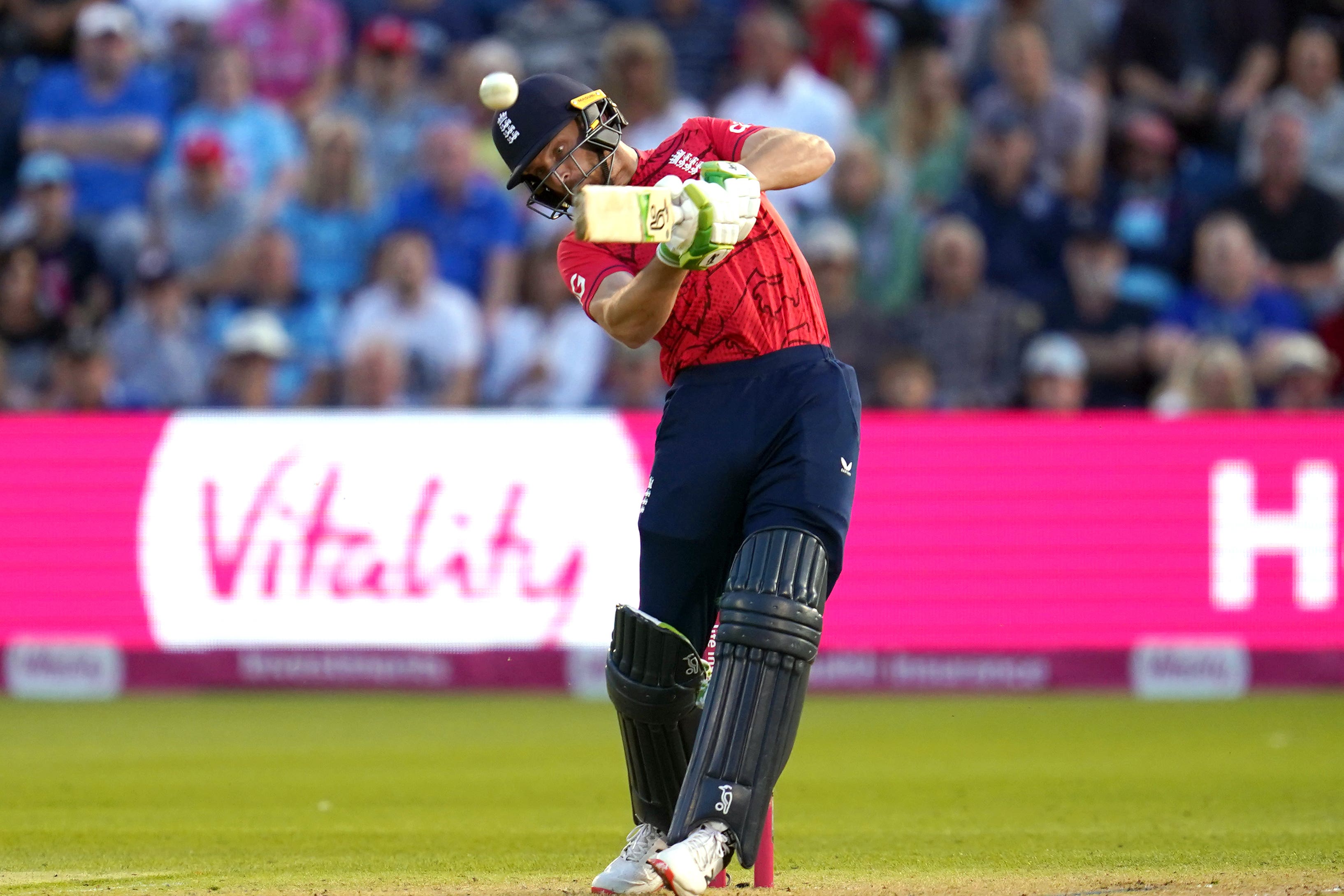T20 World Cup: Picking the key trends ahead of upcoming tournament
The tournament begins in Australia next week

England are building momentum ahead of the men’s T20 World Cup that starts on Friday, having recorded successive warm-up victories against hosts and defending champions Australia.
Here we picks out some key trends ahead of the tournament.
Win the toss and bowl
There has been a clear shift towards chasing targets in limited-overs cricket.
The prevailing wisdom in the early years of Twenty20 internationals was to bat first, with the majority of teams winning the toss between 2005 and 2016 choosing to do so (52 per cent).
However, this trend has reversed since 2017, with most captains electing to field instead (62 per cent).
Under the leadership of previous captain Eoin Morgan and current skipper Jos Buttler, England have been at the forefront of this change.
England’s T20 side has fielded first on 32 of the 34 occasions that they have won the toss since 2017. Up until 2016, their decisions at the toss were almost evenly split.
World Cup results suggest that this tactic is successful, particularly in the latter stages of the tournament.
Although there is little to choose between batting first or second in the group stage, the team chasing has prevailed on 57 and 71 per cent of occasions in semi-finals and finals respectively.
Last year’s knockout games highlighted this, with Australia and New Zealand overhauling targets against Pakistan and England in the semi-finals, before the Aussies did the same to the Black Caps in the final.
Spin to prove decisive?
Nine of the world’s top 10 bowlers in the T20 format are classed as spinners, according to the International Cricket Council (ICC).
Even in Australia – where wickets are renowned for being hard and bouncy – teams are likely to be reliant on their slow bowlers to restrict their opponents’ scoring rate.
Spinners have conceded fewer runs per over than pace bowlers in six of the seven T20 World Cups to date, with the exception being the first edition of the tournament in 2007.
While the past four World Cups having been held in the sub-continent on pitches that are conducive to spin, T20 internationals played in Australia have seen the same pattern persist over a sustained period – with spin proving more economical than pace in every year since 2011.
On average, spinners concede 7.34 runs per over in Australia compared with an economy rate of 8.02 for the quicks.
England’s Achilles’ heel
England are hitting form at the right time ahead of the World Cup, with back-to-back wins over Australia in the past week coming on the heels of a series victory in Pakistan.
They boast a stacked batting line-up and are one of just three sides to have scored their runs at more than nine per over since the previous tournament ended in November 2021.
However, England’s bowling remains a concern, with their economy rate of 8.86 over the same period among the worst of the leading contenders.
No team has won a World Cup with an economy rate above 8.13.
Afghanistan to challenge big names
- Mujeeb Ur Rahman (Afghanistan) - 6.08
- Shakib Al Hasan (Bangladesh) - 6.35
- Rashid Khan (Afghanistan) - 6.40
- Fazalhaq Farooqi (Afghanistan) - 6.44
- Sikandar Raza (Zimbabwe) - 6.57
Jos Buttler’s side face Afghanistan in their opening game next Saturday (October 22) – the lowest-ranked of the automatic qualifiers in their group.
However, the Afghanistan bowling attack is likely to cause England problems, as it features three of the five most economical bowlers in T20s in 2022.
Mujeeb Ur Rahman, Rashid Khan and Fazalhaq Farooqi have all conceded fewer than 6.50 runs per over in the shortest format this year.
For context, Adil Rashid is the most miserly bowler in England’s World Cup squad, and his economy rate is 8.11 in 2022.
South Africa to end tournament hoodoo?
South Africa have the highest win percentage of any side at T20 World Cups (63 per cent) but they are yet to win the tournament or even reach the final.
The Proteas – who go into this event on the back of the recent launch of their new T20 franchise tournament (SA20) – have developed a reputation for falling short at World Cups, having also failed to make the final in the 50-over version.
The current side have the batting firepower to worry any opponent, having scored 200 or more in five of their 13 T20 innings in 2022 – by far the best ratio of any team.
- Rilee Rossouw (South Africa) - 176.84
- Tim David (Australia) - 174.83
- Finn Allen (New Zealand) - 168.44
- Jimmy Neesham (New Zealand) - 168.28
- Tristan Stubbs (South Africa) - 166.24
South Africa’s middle order consists of in-form players such as Rilee Rossouw, Tristan Stubbs and David Miller, who all average over 30 this year at a strike rate in excess of 150 runs per 100 balls.
Much like England, their weakness is on the bowling front, but that could change if the likes of Kagiso Rabada and Anrich Nortje can replicate their recent Test form in the shortest format.
Join our commenting forum
Join thought-provoking conversations, follow other Independent readers and see their replies
Comments
Bookmark popover
Removed from bookmarks